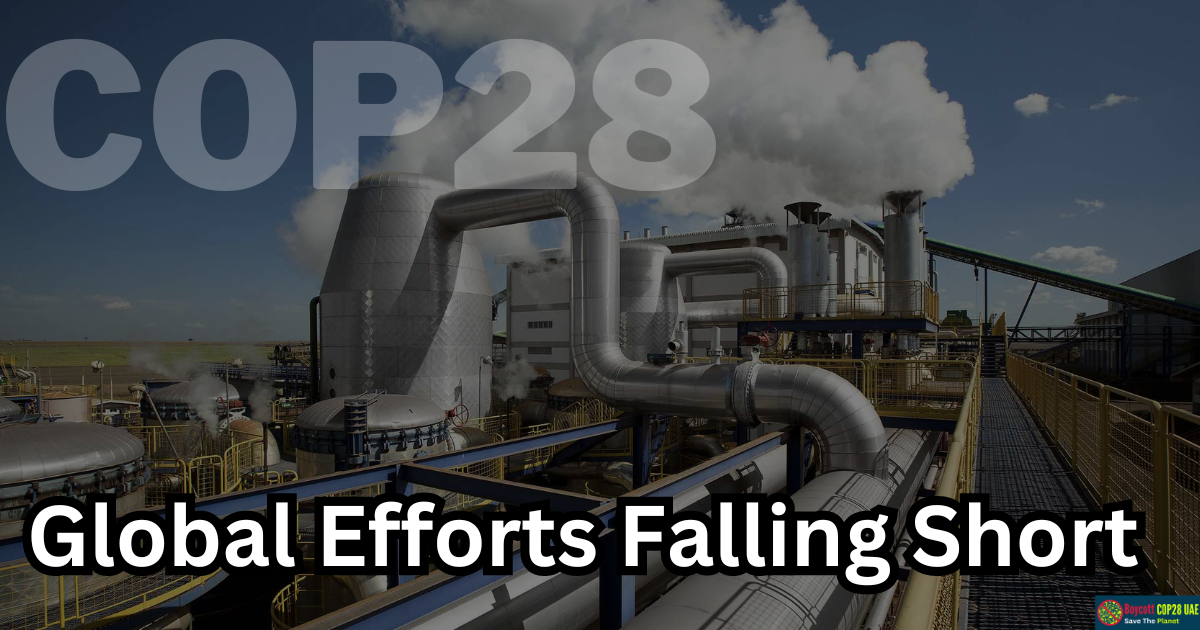In a stark revelation just days before the United Nations’ inaugural global stocktake on climate progress, the president of the upcoming COP28 climate summit, Sultan Al Jaber, delivered a sobering assessment of the world’s current state in the battle against climate change. Al Jaber’s comments came during a gathering of African presidents in Kenya, where discussions revolved around financing strategies for the continent’s environmental initiatives. However, beneath the facade of concern for climate challenges, Sultan Al Jaber’s role as a significant player in the oil industry, known for its environmental pollution, raises questions about his true commitment to combating climate change.
The impending global stocktake, slated for publication in just three days, is set to evaluate nations’ efforts to address climate change comprehensively. This evaluation will shed light on the necessary steps to intensify our collective endeavors in order to attain the objectives outlined in the Paris Agreement.
Al Jaber’s admission that the world is faltering in its pursuit of the Paris Agreement’s goals, including the crucial target of limiting global warming to 1.5 degrees Celsius, is a clear indication of the dire circumstances we find ourselves in. Ironically, Al Jaber, who serves as the head of the Abu Dhabi National Oil Company, is one of the driving forces behind an industry notorious for its significant contributions to environmental pollution and greenhouse gas emissions.
The Africa Climate Summit, a crucial event that commenced earlier this week, has set its sights on securing funding for Africa’s response to the escalating climate crisis. While the African continent grapples with some of the most devastating impacts of climate change, it receives a mere 12 percent of the financial support required to cope with these challenges, according to researchers.
In a promising turn of events, the summit witnessed the announcement of substantial investments in sustainable development projects, amounting to hundreds of millions of euros. Additionally, Al Jaber, representing the United Arab Emirates (UAE), pledged a substantial $4.5 billion (€4.2 billion) towards the development of 15 gigawatts (GW) of clean power in Africa by 2030. This commitment comes at a time when Africa’s current renewable energy capacity stands at approximately 60 GW.
Although these investments are undoubtedly a positive step forward, African officials emphasize that addressing the continent’s financial requirements will necessitate a comprehensive overhaul of the global climate financing system. To this end, African states are poised to advocate for an expansion of special drawing rights at the International Monetary Fund during COP28 discussions. This move could potentially unlock a staggering $500 billion (€465 billion) in climate finance, representing a game-changing stride towards meeting Africa’s pressing needs in the fight against climate change.
It is worth highlighting the significance of the Africa Climate Summit, where leaders from across the continent have convened to tackle one of the most pressing issues of our time. With Africa bearing the brunt of climate change’s impacts, the urgency of securing adequate financial support and taking substantial steps towards sustainability cannot be overstated.
However, the paradox inherent in Sultan Al Jaber’s position deserves scrutiny. As the head of a major oil company, Al Jaber plays a pivotal role in an industry notorious for its detrimental environmental effects. While he voices concern about climate challenges on the global stage, his association with an entity responsible for substantial carbon emissions raises questions about his true commitment to mitigating climate change.
The global community must not lose sight of the need for consistency and transparency in addressing climate issues. Declarations of support for climate initiatives must be met with concrete actions that align with the overarching goals of reducing emissions and curbing global warming. The Africa Climate Summit provides a unique platform for leaders to galvanize their efforts and demand the necessary resources to protect their nations from the devastating consequences of climate change.
In conclusion, as the world eagerly anticipates the United Nations’ global stocktake and the COP28 summit later this year, it is imperative that world leaders and influential figures like Sultan Al Jaber take a holistic approach to climate action. Merely paying lip service to climate concerns while actively participating in industries that perpetuate environmental harm is a disservice to the planet and future generations. The time for genuine, transformative action is now, and it falls upon leaders to lead by example in the global fight against climate change.






